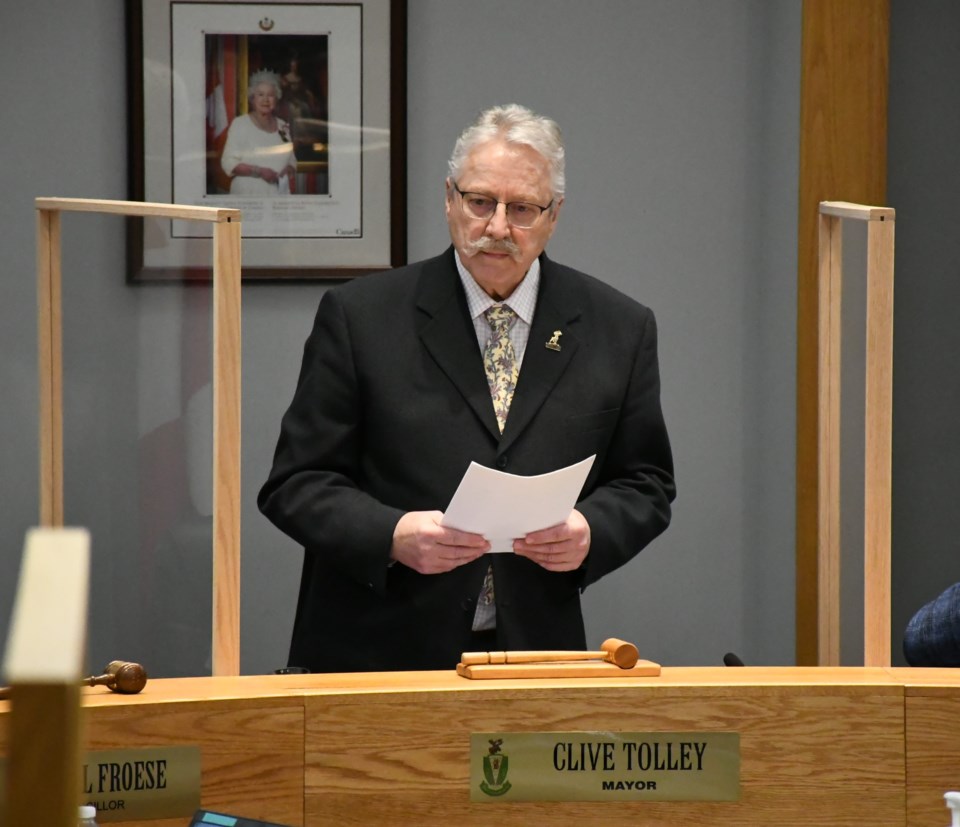City council wants to shift the tax burden from commercial to residential properties to ensure “tax fairness,” but will that fairness help or hinder people struggling to remain in their homes?
That was the question reporters posed to Mayor Clive Tolley during a media scrum after the recent council meeting. It was asked because during the executive committee meeting earlier in the night, council tentatively approved the 2022 tax policy, which featured the tax gap between residential and commercial shrinking to 1.87 times from last year’s 1.88.
With both property classes sharing this year’s tax increase, residential will see an increase equal to 6.40 per cent and commercial an increase of 6.56 per cent. During the meeting, finance director Brian Acker talked about creating fairness between those two property classes by having a balance and shrinking the gap over time.
“Everybody’s feeling the pinch these days. The price of everything is going up; the price of utilities is going up,” said Tolley. “I’m hoping there’s people that in their own homes and who don’t have much disposable income are going to continue to make it and pay their bills and stay in their home.”
Neither council nor city administration wants homeownership to become so cost-prohibitive that people leave, he continued. Real estate agents have been telling council that Moose Jaw is still one of the least expensive places to buy a home in Canada.
Tolley has spoken with new immigrants who have said they came to Moose Jaw specifically because they could afford to buy a home here versus Vancouver, Toronto, Regina or Saskatoon.
“Comparatively, I still think we’re going pretty well, but I hope that people are able to make ends meet,” he added.
One reporter pointed out that while the tax burden may shift, municipal services don’t always follow. He gave the example of the city clearing snow from downtown businesses faster than in neighbourhoods, while water and other fees have increased for residents — areas that commercial once paid more of.
Snow clearing is based on traffic counts, so city hall would remove snow from residential streets if more vehicles were there than downtown, said Tolley. Meanwhile, he didn’t think it was accurate that all fees and taxes were shifting to residential from commercial, pointing to Acker’s comments.
“Again, we want to attract businesses to this community, business development, economic development, which creates jobs so that more people can work here and make a living to live here,” he continued. “So, it’s a balancing act in terms of trying to create this fairness you’re talking about.
“It’s difficult. I’m not saying it’s not difficult,” the mayor added. “We can only be thankful we’re in Moose Jaw and we’re not somewhere else where it’s more difficult.”
Afterward, the media asked city manager Jim Puffalt why it was important for residents to share more of the tax burden.
He replied that council and city hall are attempting to balance who pays what. Furthermore, this situation is not unique to Moose Jaw since other Saskatchewan cities have also had commercial properties pay more of the overall property bill and are working to reduce the gap. More property taxes are generated with more economic activity, businesses, and jobs.
“Everybody’s trying to bring that (tax gap) down to a more reasonable level because we have to be aware of the residents’ concerns, but also aware of the businesses’ concerns,” he said. “They also can go lots of places to create their business, so it’s important that we have that open, attractive, welcoming atmosphere …
“So, we encourage businesses to stay and we encourage new businesses to come and that increased activity helps to pay for everything we have to do.”
The next regular council meeting is Tuesday, May 24.




